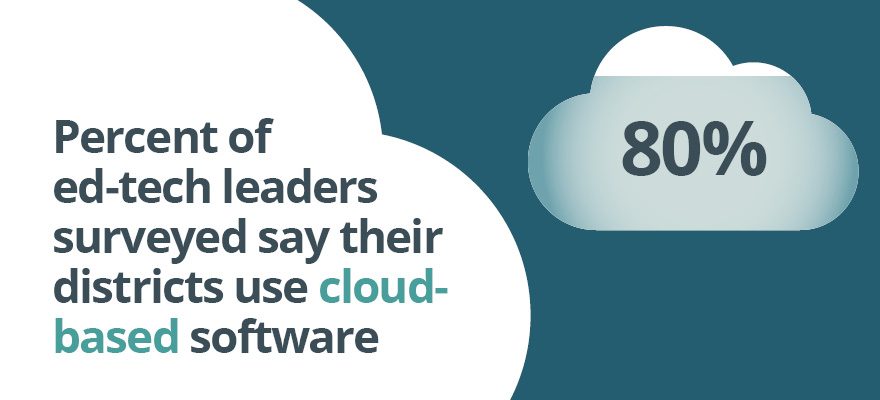Indiana and Vermont are looking for testing vendors to develop K-12 assessments for their respective states. Meanwhile, a Rhode Island district wants a GoGuardian Chromebook management system.
Eau Claire Area School District, Wis., wants student activity registration software, and Jefferson County Public Schools, Ky., seeks a visitor check-in platform.
Prepare to Meet Schools in the Cloud Because That’s Where They’re Going
Four of Five District Ed-Tech Leaders Surveyed Said They Use Cloud-Based Systems From Third-Party Servers

The potential to avoid time-intensive tech maintenance is a big factor driving districts toward cloud computing, according to an exclusive survey by the Education Week Research Center and the Consortium for School Networking.
Districts seek ed-tech businesses to provide systems in early childhood learning, organizing human resource tasks, and enterprise networking.
The Trenton school district wants a platform to manage recruitment and professional growth, and a Texas charter school network seeks blended learning curricula.
Amazon’s Emergence in K-12 Education: Why Other Companies Should Care
While Many Educators Are Unaware of the Company's Offerings, Users of Its School Products Have Favorable Views

Amazon has a burgeoning role as a provider of cloud-based storage and online purchasing in K-12 systems — and its moves are being closely watched.
The Rosemount-Apple Valley-Eagen Schools looks to buy an adaptive testing program, and the Calif. district is looking for system to manage iPads and MacBooks.
Startups can help schools mine education data to measure “fuzzy” traits and abilities, like enthusiasm, joy and teamwork.
Districts invite authorized HP and Dell vendors to provide Chromebooks and additional ed tech equipment.
Opportunities exist for new ed-tech companies, even amid the sea of educational technology on display at ISTE 2017.

